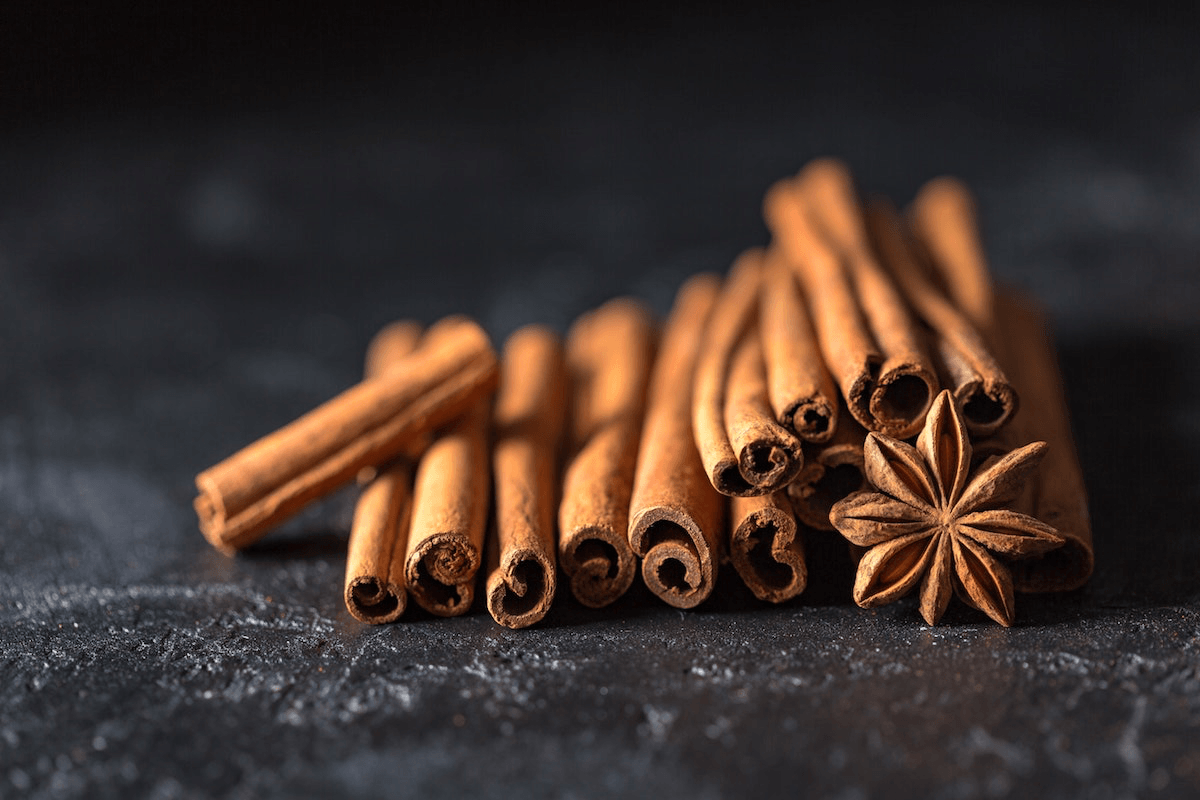
Cinnamon:
Anti-inflammatory, Anti-fungal, Brain Health, Heart Health, Respiratory Health
Cinnamon is the great equalizer of sweet and spicy. It has the ability to naturally sweeten recipes without the use of sugar, while still adding a spicy and aromatic bite. The notable flavour and smell of cinnamon is caused by the chemical compound cinnamaldehyde (yes, this is a real word), which is also believed to contribute to this spice’s many medicinal properties.
Cinnamon comes from the bark of cinnamon trees. It’s harvested by extracting the inner bark from the tree stems and then dried. As the bark dries it starts to curl in on itself, forming cinnamon sticks. When ground, these sticks become cinnamon powder.

(Photo from Minimalist Baker)
Approximately 250 species of cinnamon have been found worldwide, but there are two types of cinnamon commonly used in kitchens today. Cassia is the more widely available breed of cinnamon, while Ceylon (sometimes called true or real cinnamon) is considered the more potent version.
Cinnamon is packed with antioxidants, which fight against the damaging effects of free radicals. In fact, in a study that compared the antioxidant capacity of 26 other herbs and spices, cinnamon ranked the highest! Thanks to its potent immune-boosting compounds and antimicrobial, antibiotic, antifungal and antiviral properties, it’s no surprise that many cultures also use this power spice to naturally combat infections and viruses.

(Photo from The Perpetual Season)
Other conditions that cinnamon is believed to help combat are brain disorders and inflammation (1, 2). One study found that a daily intake of just 6g of cinnamon reduced “bad” LDL cholesterol, while another found that inhaling the vapors of cinnamon oil lowered levels of fungus that caused respiratory issues.
From supporting heart health to fighting infections and combating age-related diseases, cinnamon truly is the spice of life!
How to enjoy
Season any dish, add it to baked goods, homemade nut milk and soup, make a spiced latte, steep your own cinnamon tea, or make mulled wine or mulled apple cider.
